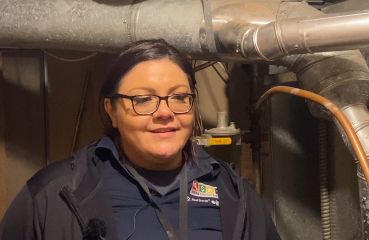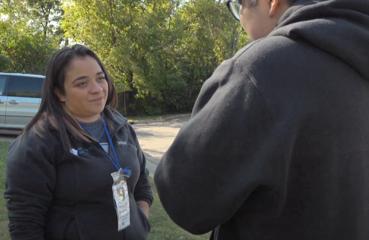Since launching in 2018, COPAL (Comunidades Organizando El Poder Y La Acción Latina or Communities Organizing Latine Power and Action) has blossomed into a well-known, grassroots institution. Based in Minneapolis, the organization is dedicated to improving the lives of Latine Minnesotans across the state.
 Embracing a holistic approach, COPAL tackles a myriad of community concerns, from fostering health and education to championing workers’ rights and environmental justice.
Embracing a holistic approach, COPAL tackles a myriad of community concerns, from fostering health and education to championing workers’ rights and environmental justice.
“We understand that our community has immediate needs. We ask how we can meet those needs," says Carolina Ortiz, COPAL’s associate executive director. “But we also ask, why? Why are we in that cycle of need? How can we change that reality?”
Ortiz emphasizes the pivotal role of environmental justice in COPAL’s mission. Supporting green jobs and clean energy are stand out points in their work, but COPAL’s efforts extend even further. By confronting climate change and challenging extractive business models, COPAL is working to address the root causes of internal and external forced migration. It’s a reality that Ortiz understands intimately.
“My family was actually forced to migrate to Minnesota due to my health issues as a child,” she says. “I can now connect those issues back to being surrounded by big major polluters in Mexico.”

 led with health issues and asthma from infancy.
led with health issues and asthma from infancy.





